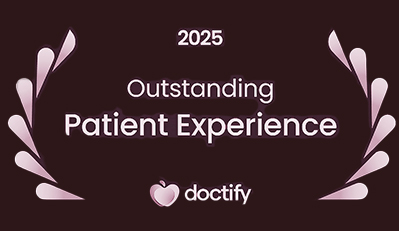
Can you have lens replacement with dry eyes?
If you suffer from dry eyes and are thinking about lens replacement surgery, you might be wondering: "Am I still a candidate?"
The answer is: Yes, many people with dry eyes can safely have lens replacement surgery. But it’s important that your condition is properly assessed and well-managed both before and after the procedure.
In this blog, we’ll explain how dry eye affects your candidacy, what to expect, and how we help people with dry eyes achieve great outcomes.
What is dry eye?
Dry eye happens when your eyes don’t produce enough tears or when the tears evaporate too quickly.
It can cause:
- Gritty, sandy sensations
- Blurry or fluctuating vision
- Redness or burning
- Eye fatigue.
It’s common—especially in people over 40, and even more common in those considering lens replacement.
What is lens replacement surgery?
Lens replacement, or refractive lens exchange, replaces your natural lens with a clear artificial intraocular lens (IOL). It corrects vision and prevents future cataracts.
It’s ideal for people over 45 who:
- Rely on reading glasses or varifocals
- Have early cataracts
- Are not suitable for laser eye surgery.
Can dry eyes affect the results?
Yes—if unmanaged, dry eye can:
- Affect the accuracy of pre-surgery measurements
- Lead to more discomfort during healing
- Impact visual clarity in the early weeks after surgery.
That’s why managing your dry eye before and after surgery is essential to achieving a successful result.
How we manage dry eyes before surgery
At Mitry Vision, we screen every patient thoroughly for dry eye symptoms and signs.
If you have dry eye:
- We’ll treat it first, before surgery
- You may be given artificial tears, warm compresses, or prescription drops
- We may use diagnostic tools to assess your tear quality and eye surface.
Taking the time to treat dry eye before surgery improves accuracy and comfort during recovery.
What happens after surgery?
It’s common for dry eye symptoms to temporarily worsen after surgery, as your eye adjusts and heals.
To help with this, we may:
- Prescribe lubricating drops
- Recommend regular eyelid hygiene
- Suggest omega-3 supplements to support tear production.
Most symptoms improve within a few weeks. If dryness persists, we’ll tailor a long-term management plan.
Is lens replacement better than laser surgery for dry eyes?
In many cases, yes.
Laser eye surgery reshapes the cornea and can worsen dry eye symptoms, especially in people who already have dryness.
Lens replacement doesn’t touch the cornea, making it a safer choice for many dry eye patients—especially those over 45.
What about lens choices?
Some types of intraocular lenses can cause more visual disturbances—like halos or glare—especially in people with dry eyes.
We’ll help you choose the right lens based on:
- Your lifestyle
- Your tear film and eye surface
- Your visual goals.
In many cases, patients with mild to moderate dry eye still do very well with multifocal or extended depth of focus (EDOF) lenses.
Will my dry eye go away after surgery?
Lens replacement doesn’t treat dry eye, but it doesn’t make it worse long-term either.
You’ll likely need to continue managing dry eye after surgery, just like before. But with proper treatment, it shouldn’t prevent you from enjoying the benefits of clear, glasses-free vision.
Summary: What you need to know
- Dry eye is common in people considering lens replacement
- It doesn’t disqualify you from having surgery
- Managing it before and after improves your outcome
Lens replacement is often better tolerated than laser in dry eye patients.
Take our free suitability self-test to see if lens replacement is right for you—even if you have dry eyes.
Find out if you are suitable for vision correction
Not everyone is eligible for vision correction surgery.
Find out if you could benefit from this life changing surgery by taking the quick self-suitability quiz below:




